Red Bull have brought the most upgrades for the Hungarian Grand Prix this weekend but their rivals aren’t standing still.
Mercedes, Ferrari and Aston Martin and several others have also made revisions to their cars. Only three teams have unchanged chassis this weekend – McLaren, Williams and Alfa Romeo, all of which recently introduced significant packages of new parts.In some cases teams are merely tuning their current cars for the high downforce requirements of the Hungaroring. Notably, Ferrari and Alpine have both brought new front wings for this race designed to increase the peak load.
While Red Bull have a mix of circuit-specific upgrades and general performance enhancements, others have brought single new parts. Aston Martin have reshaped their engine cover and enlarged its exit to provide better cooling at a track where ambient temperatures tend to be high. Haas have also revised their floor.
Mercedes and AlphaTauri have brought the next-largest revisions after Red Bull. The W14s sport new rear wings designed to increase downforce for this track, featuring larger cut-out sections to increase the volume of air which passes underneath the tip. Towards the front of the car, changes have been made to the front wing end plate and front suspension to improve air flow further down the car. Mercedes expect the latter will allow the floor to perform better.
AlphaTauri have more than just a new driver this weekend. As they seek to escape last place in the championship, the team has brought a package of changes largely aimed at producing downforce more efficiently. These include changes to the rear wing, front wing and nose. The AT04’s floor has also been widened which the team believe will accelerate the flow of air beneath it, reducing the pressure and increasing the load it generates.
Advert | Become a RaceFans supporter and
2023 Hungarian Grand Prix F1 teams’ updates
The teams described the changes to their cars for this weekend’s race as follows.
Red Bull
Front corner
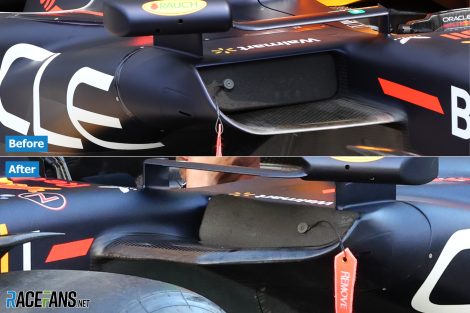
Reason for change: Reliability
Difference: “Enlarged front brake duct exit”
Description: “Enlarged exit to cope with the greater brake energy and low average speed of the Hungarian Grand Prix circuit.”
Rear corner
Reason for change: Reliability
Difference: “Enlarged rear brake duct exit with additional winglets”
Description: “Enlarged rear brake duct exit for more cooling with winglets to add some local load and improve the exit condition suited the requirements of brake cooling at the Hungarian circuit”
Sidepod inlet
Reason for change: Reliability
Difference: “A broader and shallower inlet to achieve a further increase of the aspect ratio.”
Description: “Changing the aspect ratio of the inlet has improved the pressure at the entry to the radiator duct and therefore the cooling efficiency ahead of one of the more difficult circuits for car cooling.”
Coke/engine cover
Reason for change: Reliability
Difference: “Wider sidepod from the inlet extending to the rear suspension forward legs.”
Description: “Having revised the inlet duct a wider sidepod panel was necessary and utilises the greater inlet pressure to exploit the inlet improvements. This extends to the rear suspension and revises the cooling air exit path.”
Floor body
Reason for change: Performance – local load
Difference: “Revised split line to revised sidepod, floor edge detail revised to suit.”
Description: “The re-shaped sidepod has led to subtle floor edges changes to work with the upstream surfaces, which has extracted some more local load.”
Advert | Become a RaceFans supporter and
Ferrari
Front wing
Reason for change: Circuit specific – balance range
Difference: “Reprofiled front wing flap and addition of full span gurney”
Description: “The specificities of the Budapest track layout are requiring a high downforce configuration. This front wing flap update simply gives the necessary aero balance range authority.”
Mercedes
Front wing endplate
Reason for change: Performance – flow conditioning
Difference: “Front wing endplate dive plane lifted”
Description: “Lifts vortexes shed off dive plane which in turn interacts more”
Front suspension
Reason for change: Performance – flow conditioning
Difference: “Inboard suspension camber reduction”
Description: “Reduced camber improves flow quality along the chassis side and on to the front of the floor, resulting in increased floor load.”
Rear wing
Reason for change: Circuit specific – drag range
Difference: “Increased rear wing tip side view cut-out”
Description: “Circuit specific – larger wing tip cut-out increases the mass flow under the wing tip, which increases local downforce and drag.”
Advert | Become a RaceFans supporter and
Alpine
Front wing
Reason for change: Circuit specific – drag range
Difference: “Bigger front wing flap that runs with the new front wing mainplane (used in Silverstone for the first time)”
Description: “A bigger front wing flap to rebalance the higher rear downforce level that we will use at the Hungaroring this weekend.”
Aston Martin
Coke/engine cover
Reason for change: Circuit specific – cooling range
Difference: “The new engine cover has a larger exit area compared to the previous version.”
Description: “Part of the cooling set-up options the larger exit area increases the volume of cooling flow exited from the bodywork.”
Haas
Floor body
Reason for change: Performance – flow conditioning
Difference: “As part of the in season car aerodynamic development, we have modified the outboard area of the Floor Body.”
Description: “The research work of the aero department this time have been focused in the management of the flow expansion of the car underneath affecting the shape of the component that is called “Floor Body”.”
Advert | Become a RaceFans supporter and
AlphaTauri
Front wing
Reason for change: Performance – local load
Difference: “Compared to the previous geometry, the central front wing elements have been raised. The outboard front wing also features a more loaded flap.”
Description: “The central front wing changes result in a more efficient generation of downforce. The outboard flap tip loading creates a more favourable interaction between the front wing and front wheel wake losses, improving onset flow quality to the rest of the car.”
Nose
Reason for change: Performance – local load
Difference: “Compared to the previous geometry, the nose tip has been raised to match the change in central front wing elements.”
Description: “The nose change results in more efficient generation of downforce working in combination with the above changes to the central front wing.”
Floor body
Reason for change: Performance – local load
Difference: “Compared to the previous geometry, the central part of the rear floor has been made wider.”
Description: “The wider central floor generates increased load through local surface curvature changes which accelerate the local flow and generates lower pressure under the floor as a result.”
Rear wing
Reason for change: Performance – local load
Difference: “Compared to the previous geometry, the rear wing flap tips have been modified.”
Description: “The rear wing tip changes give an efficient increase in loading of the wing elements.”
Advert | Become a RaceFans supporter and
2023 Hungarian Grand Prix
- Was F1’s Alternative Tyre Allocation test successful? Drivers and teams have their say
- How far can McLaren climb with car rivals now say is the second-fastest in F1?
- Why Ricciardo says McLaren’s car “speaks Lando’s language” – but Norris disagrees
- Mercedes reveal cooling error behind loss of pace in Hungarian GP
- Perez answered critics in Hungary but needs to qualify better – Horner




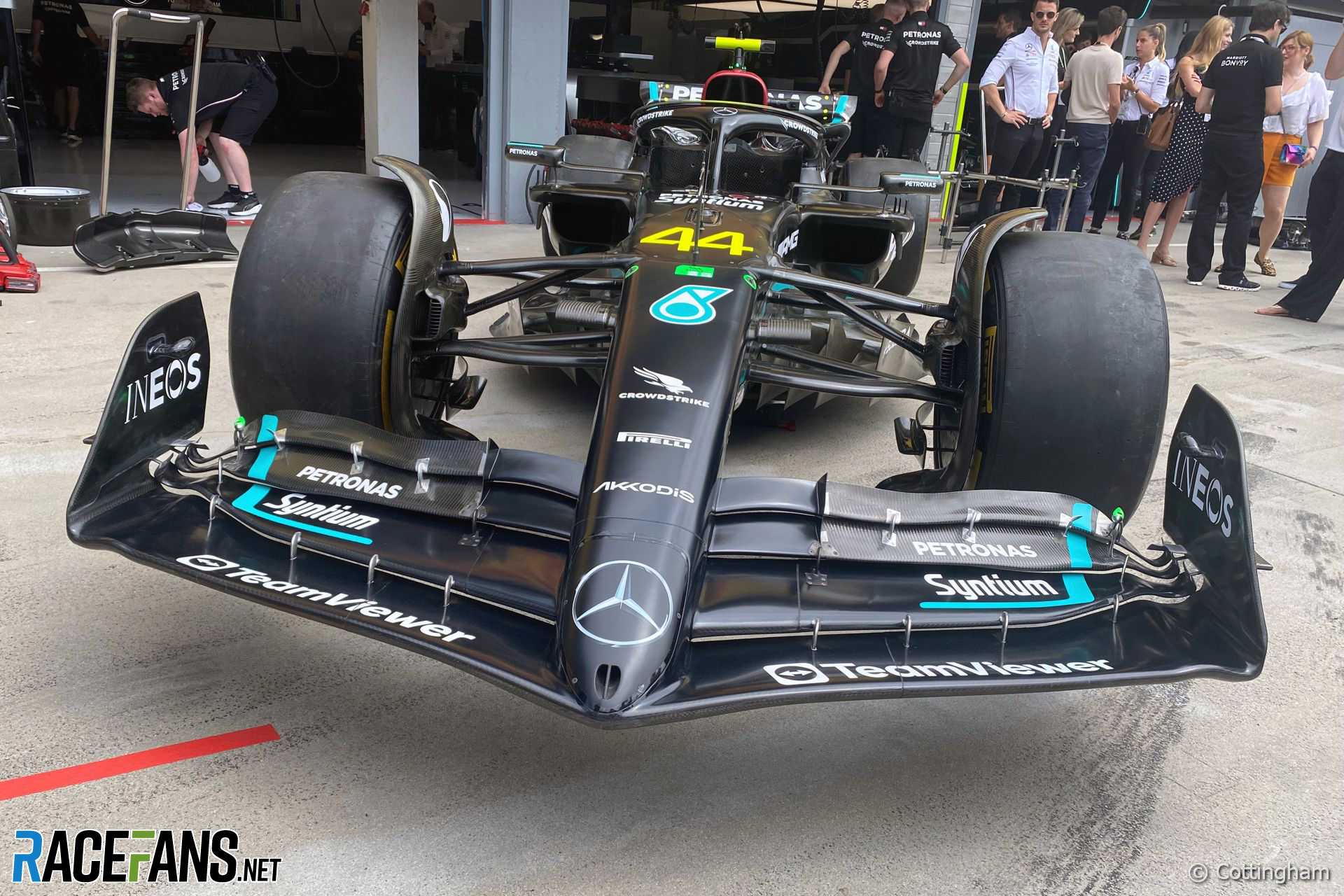
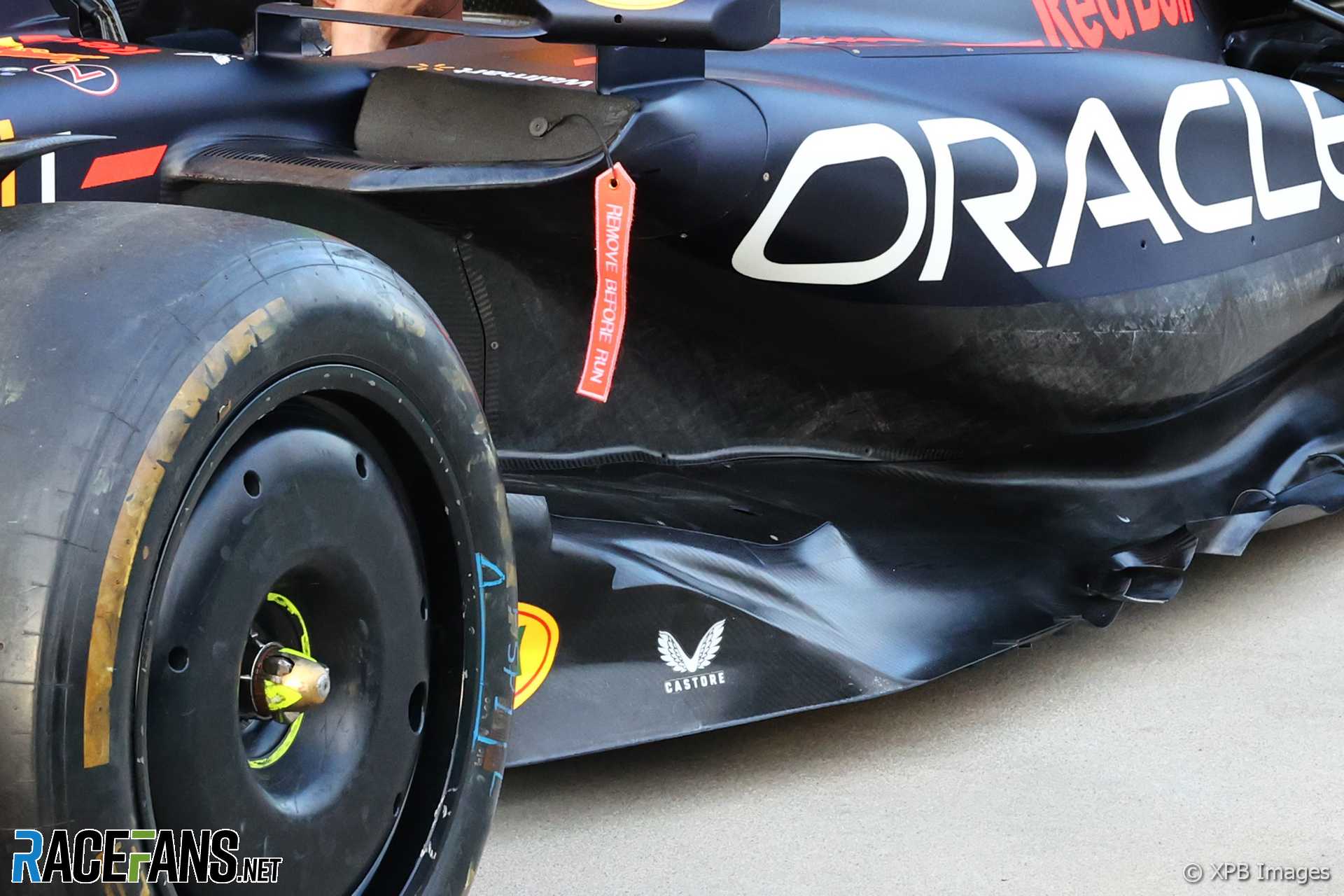
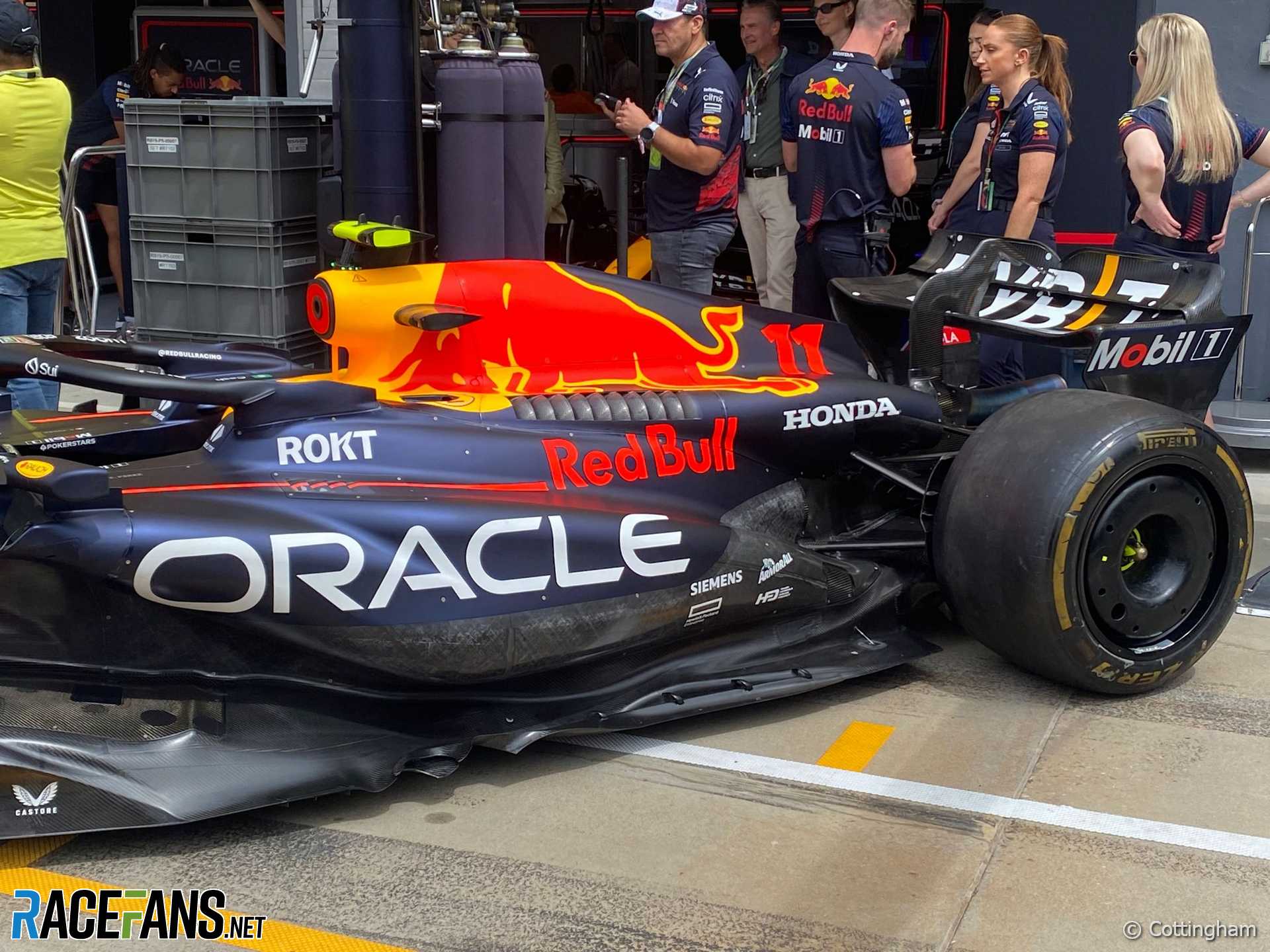
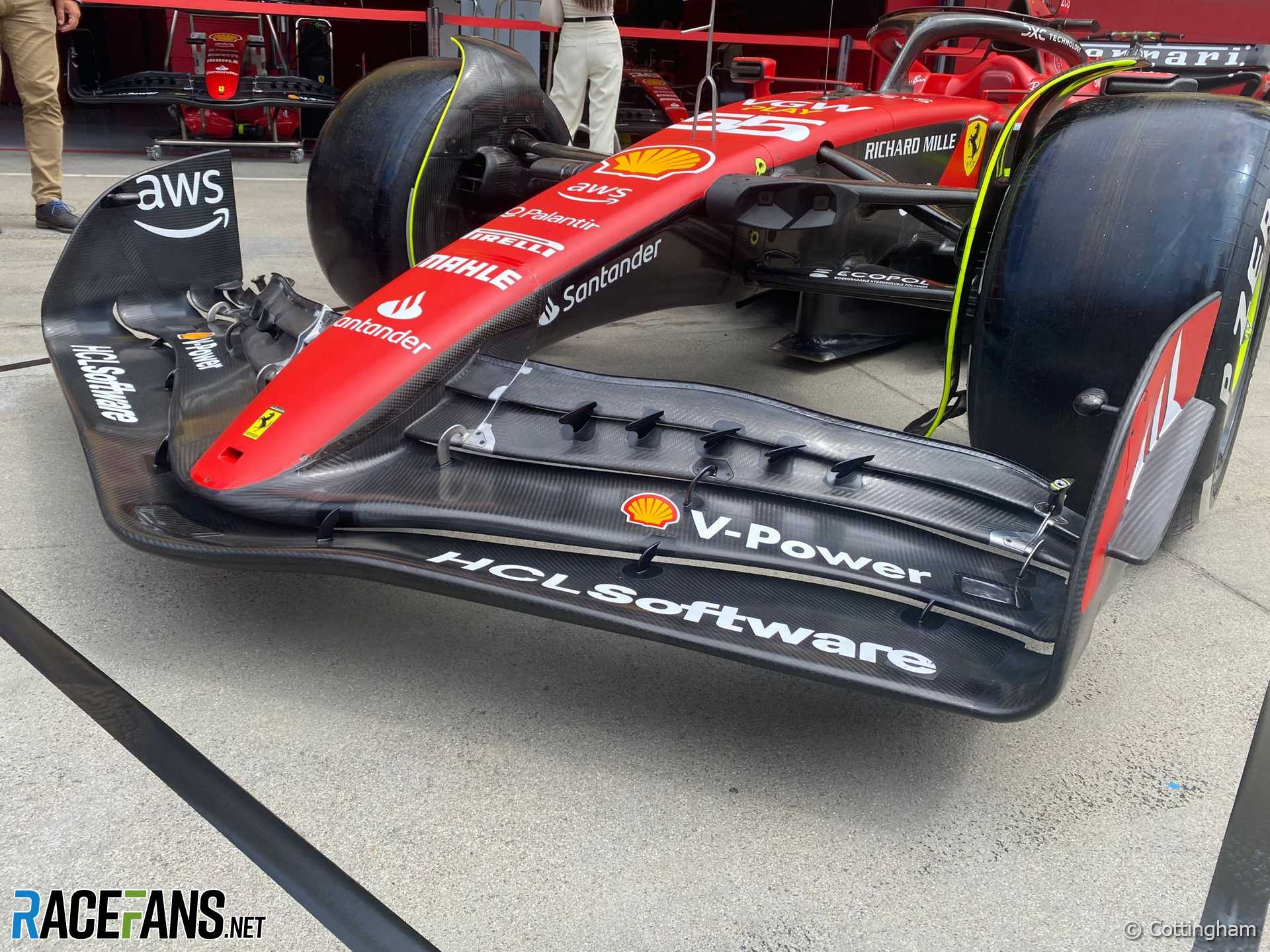
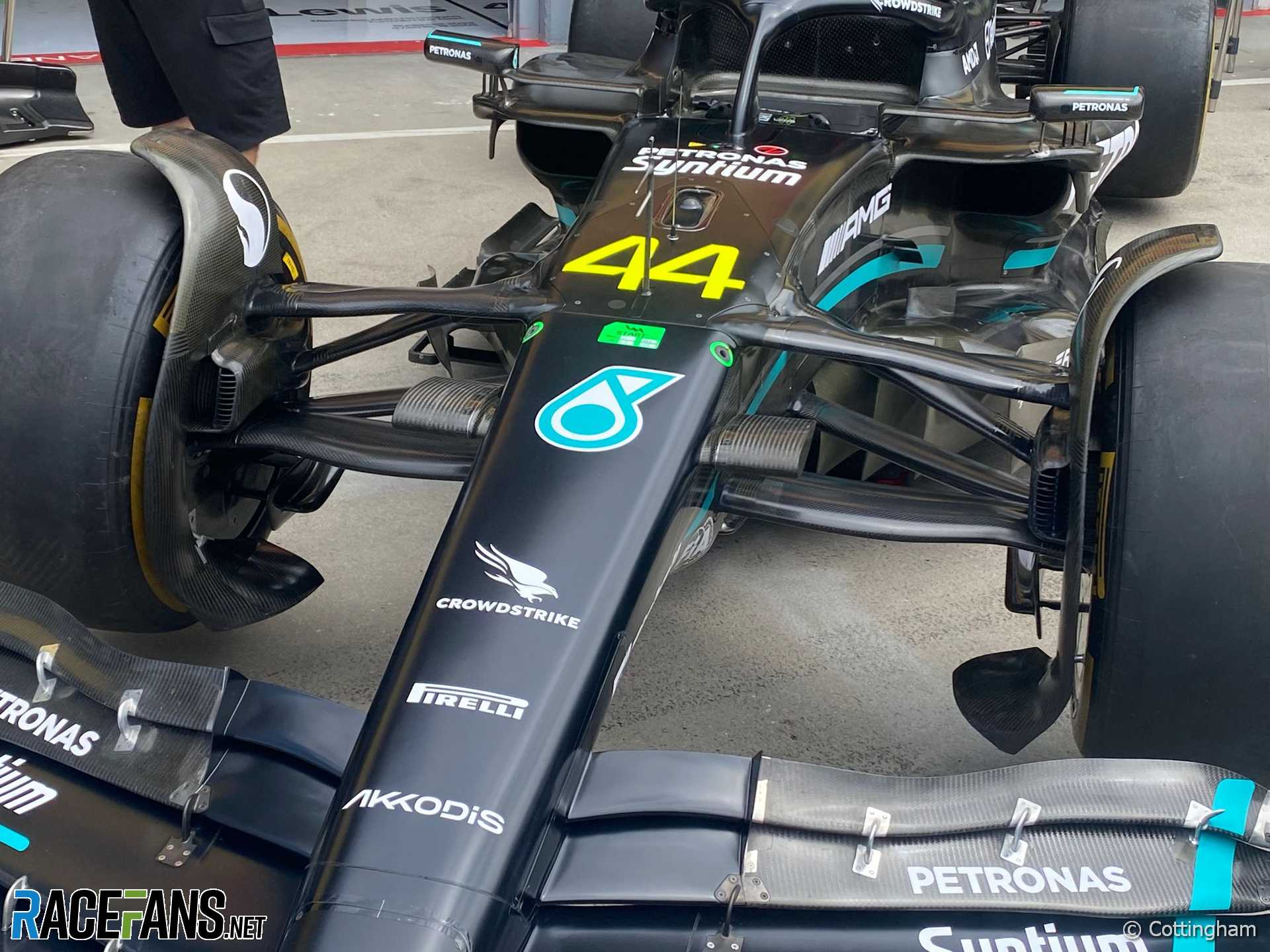

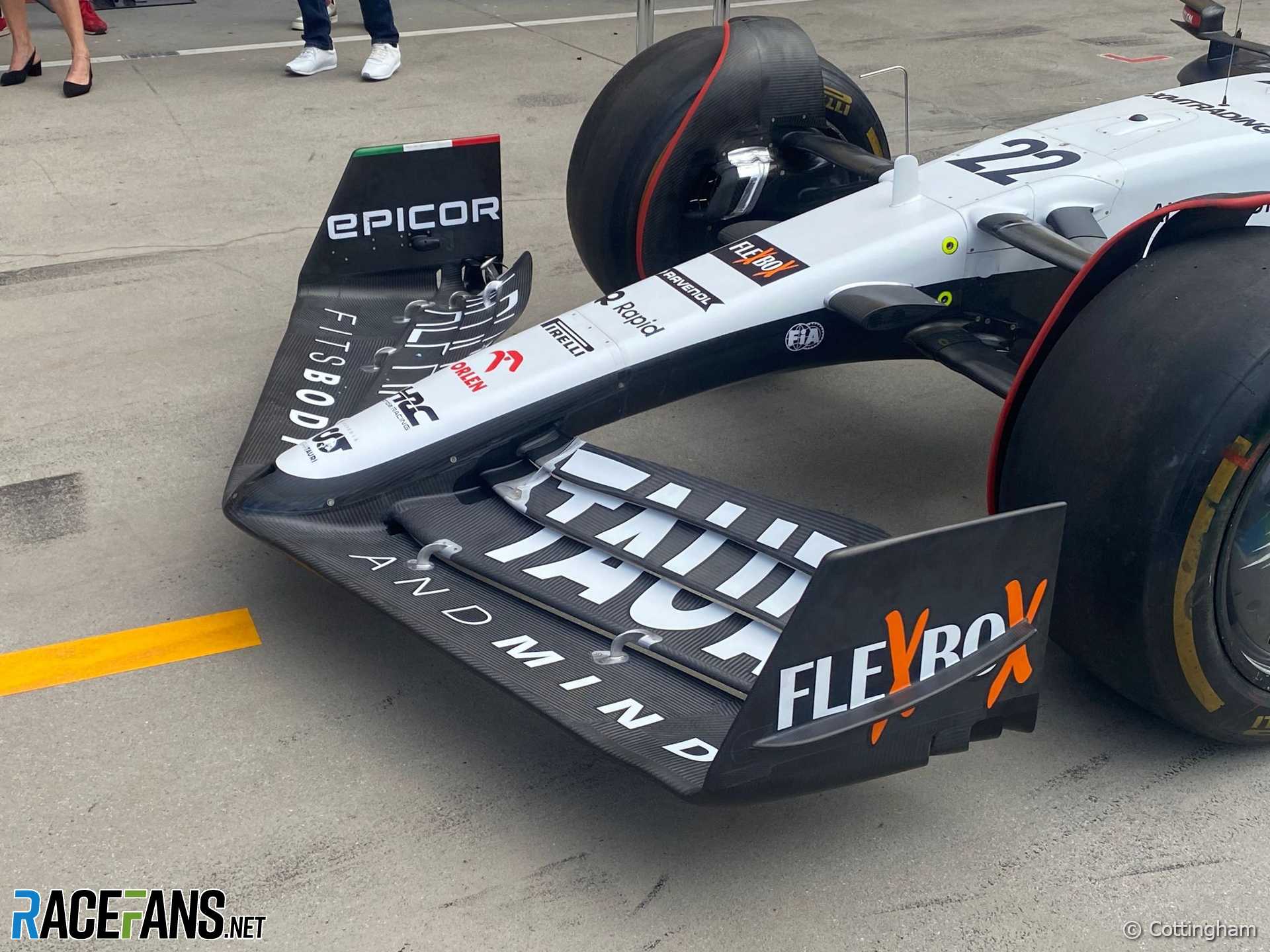
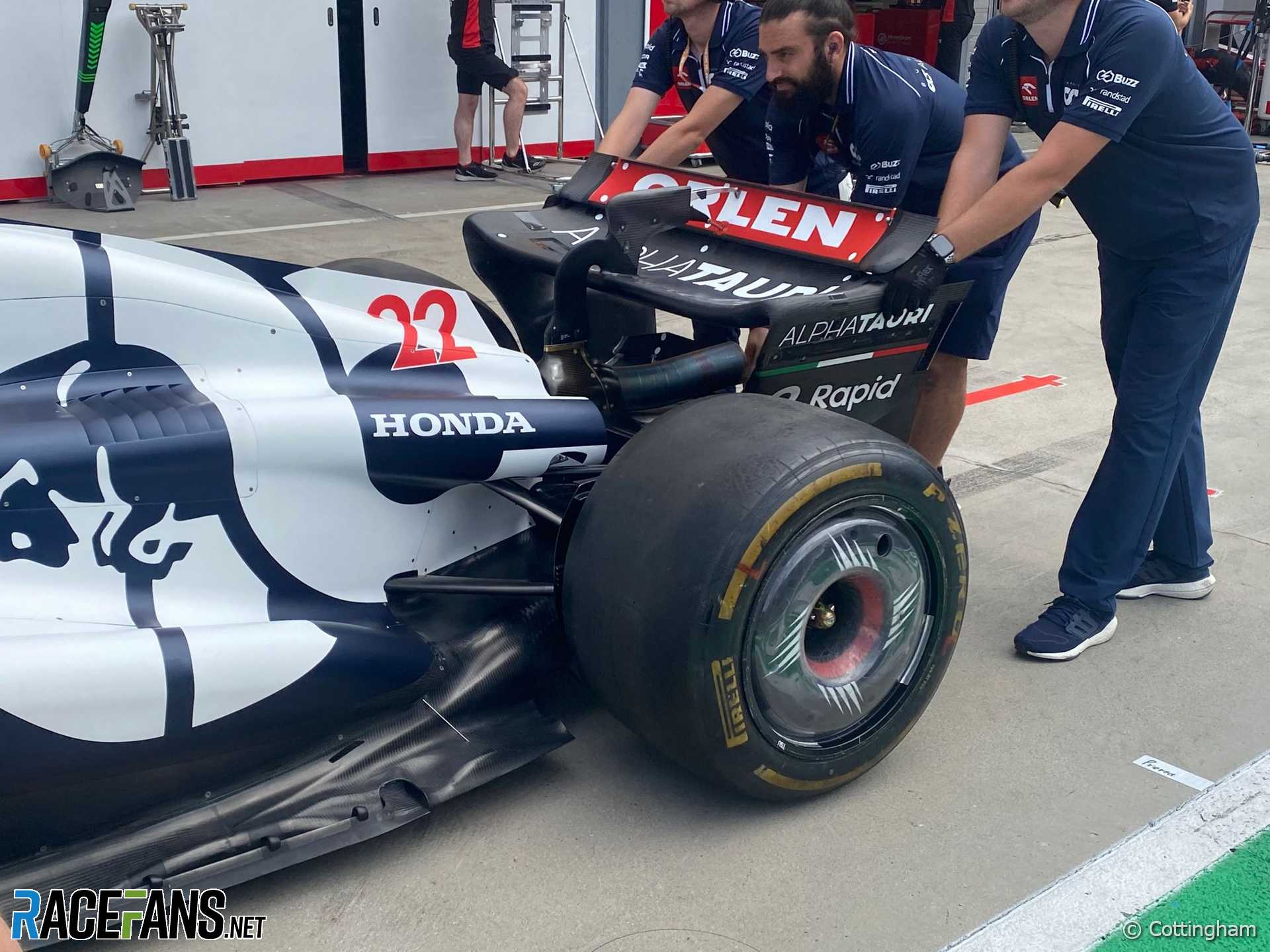
Haas Khan (@haas918)
21st July 2023, 12:22
I was watching an interview earlier today where Max told that the car will be faster at Hungary, especially in the corner after recent upgrade.